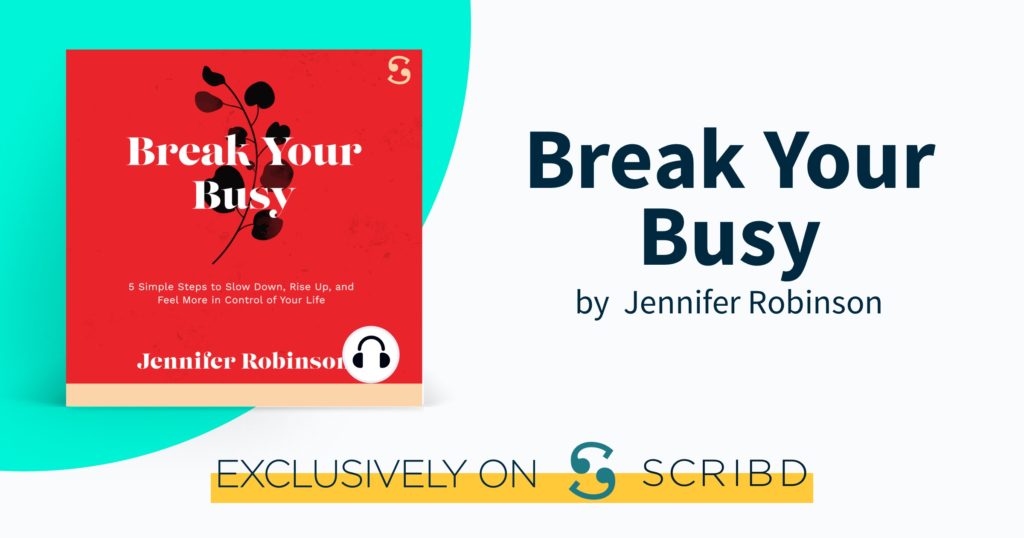“I want it now!”
Words you would expect to hear from an impatient child, right? Sadly, we adults have grown accustomed to getting our way in a timely fashion. Anything short of immediate gratification is “late” (and thus, reprehensible/annoying). Some of us often equate waiting with “wasting time.” If we are at a standstill, we are losing productivity.
So is it bad to have to wait for something? No, not at all. We watch as our kids salivate when Christmas presents appear under the tree, knowing they have no choice but to wait. And we tell them all along, “be patient, Christmas will be here before you know it.” Waiting is a necessary factor of life. In fact, it can be quite fruitful to have to wait, both in the short term and the long term. There is worth to the statement, “It will be worth the wait.”
Short Term Waiting: Opportunities for Mindfulness & Connection
Instant gratification and the seemingly overwhelming need for it undermines our ability to wait. No matter how much we plan our days to minimize waiting, there will always be moments when we are forced to find some measure of patience (red lights, grocery store lines, etc). We can either make the best of our short-term wait or allow it to ruin our day.
Often we are too busy rushing about to see the small joys of life. We are so singularly-focused on our tasks, we miss the forest for the trees. We strive to be as productive as possible – which means staying focused on our task and have it completed as soon as possible.
Embrace Waiting
How we choose to spend our waiting time is as important as what we are waiting for. Waiting affords us the opportunity to take note of our environment, but it is up to us to seize this occasion and use it to its fullest. This is time that can be used to check in with ourselves (what is my body feeling right now?) and to cultivate mindfulness. Take in your surroundings. Engage in light conversation with someone else in line.
As we learn to embrace waiting, we increase our patience and resilience. We become better-equipped to take life as it comes and to “lean in” to situations that may otherwise have emotionally derailed us. For those of us who struggle with anxiety, these lessons may be indispensable because they give us the chance to regain our equilibrium. Being forced to stop and take a breath also has the wonderful side effect of allowing us to rest. We may as well enjoy it while we can!
Long-term Waiting: Embracing Delayed Gratification
Long-term waiting puts our priorities in perspective. When we make short-term sacrifices in pursuit of greater goals, we are asking ourselves – is this what we really want? The choices we make for these long-term objectives build perseverance and discipline. What am I willing to forego in the near/immediate future order to get what I truly want later?
While short-term goals tend to satisfy basic needs, long-term goals bring greater, longer-lasting benefits.

Transformative COURSES & WORKSHOPS that make integrating peaceful living, health and wellness easy, fun and affordable.
But, how do we keep our eyes on the prize? We need to change the way we view these immediate gratifications and to see them as the distractions they are. Anything that keeps us from our intended path is a distraction. As such, immediate gratification is a distraction, pulling us away from our intended objective. Staying on track not only keeps us aligned with our goals, but also gives us the time needed to revisit our motivation for these goals and to pivot/change trajectory as needed.
Consider using an accountability partner to help stay the course. Check in with them and use them as a sounding board. Reach out to them when a craving hits that may take you off your path. Another great option is the “Seinfeld Strategy” or the “don’t break the chain method.” Start small by incorporating the habits you will need to get you to your long term goals. And then keep on doing them, day after day. It is much harder to break a streak of success than one of inconsistency.
Helping Kids See the Merit of Waiting:
By nature, kids are impatient. Our societal emphasis on immediacy fuels this impatience. So how do we, as parents, dial it back? Modeling is the first thing. Consider this: You are in the car together, already late to your intended destination, when you catch every single red light. While you may be exasperated, use this time for something else – a fun chat, an exercise in mindfulness, even a joke. Allow them to understand that you cannot change this but you can see it differently – as an opportunity for you to do something together while you make your way.
Use commitment devices with your kiddos. Accountability, as mentioned above, is a great way to get them involved. Kids are GREAT accountability partners – what kid doesn’t like being in charge of keeping Mommy and Daddy in line? Let them know your goals, as well as learning theirs. Collaborate about what sacrifices may need to be made to reach them. In doing so, you both support each other and deepen your connection.
Embrace Boredom
Learn to embrace boredom. Boredom and waiting have a lot in common. Just as we try to minimize waiting, we strive to avert boredom. We play on our phones in the waiting room at our doctor’s office. However, just as waiting has its benefits, so does boredom. When our minds have stopped processing texts, emails, etc, and we are not actively “working”, a mental space opens up. In that space, lies the ability for greater creativity.
Allow yourself to be bored, then invite the kiddos to join. See what comes up for both of you.
Conclusion:
How often do we hear, “good things come to those who wait?” How often are we comfortable with making the choice to embrace both the short-term and the long-term waiting? We need a mindset shift to understand that time spent not in active pursuit of a goal is still productivity. Perhaps it may be the most important kind of productivity – the kind that nourishes you as a person and allows you to step back from the hustle step into your being.

NEELMA PYFROM
Hi! I’m Neelma, a Certified Life Coach/Life Strategist specializing in helping teens and young adults (and the families who love them) deal with anxiety, depression, confidence, and motivation. Together, we negotiate the hardships of the adolescent years -learning the skills needed in order to help them become successful adults who have found their peace, purpose, and authenticity. I have a passion for time management and positive habit formation and love sharing everything I learn (forever student) with the folks I coach.
In my spare time, I enjoy running, meditating, reading, crossword puzzle-ing, and boating with my husband and our two girls and our furbaby.



